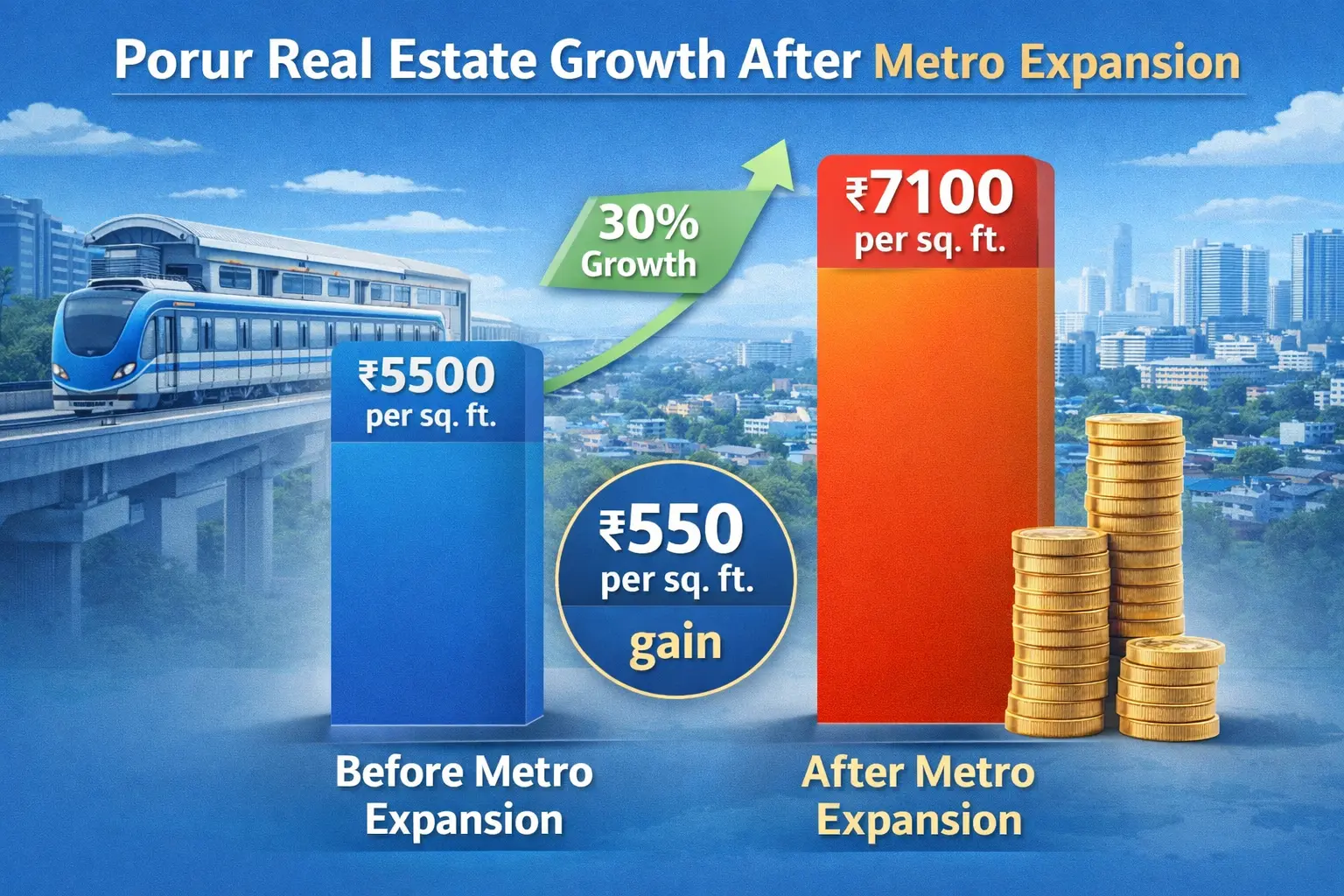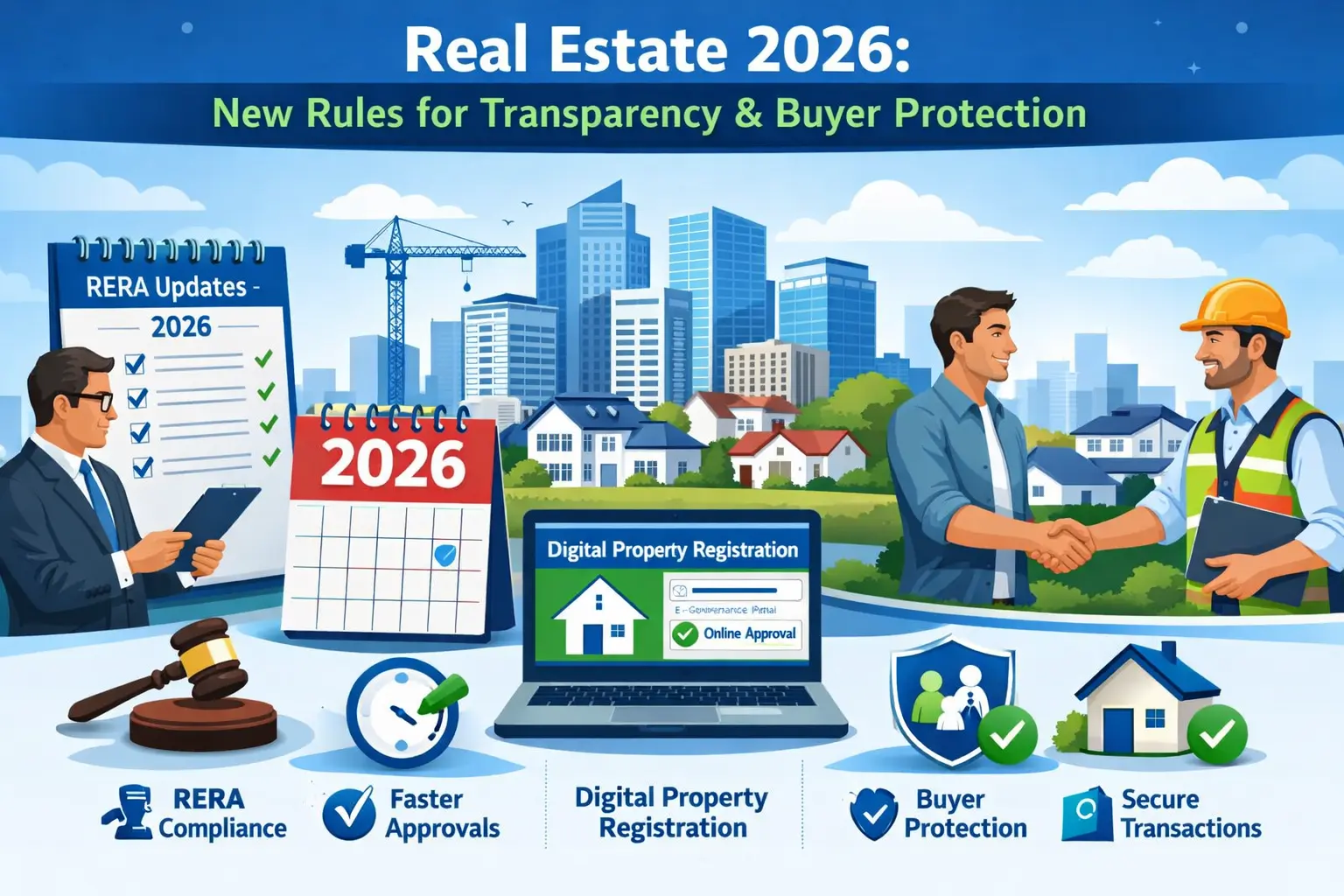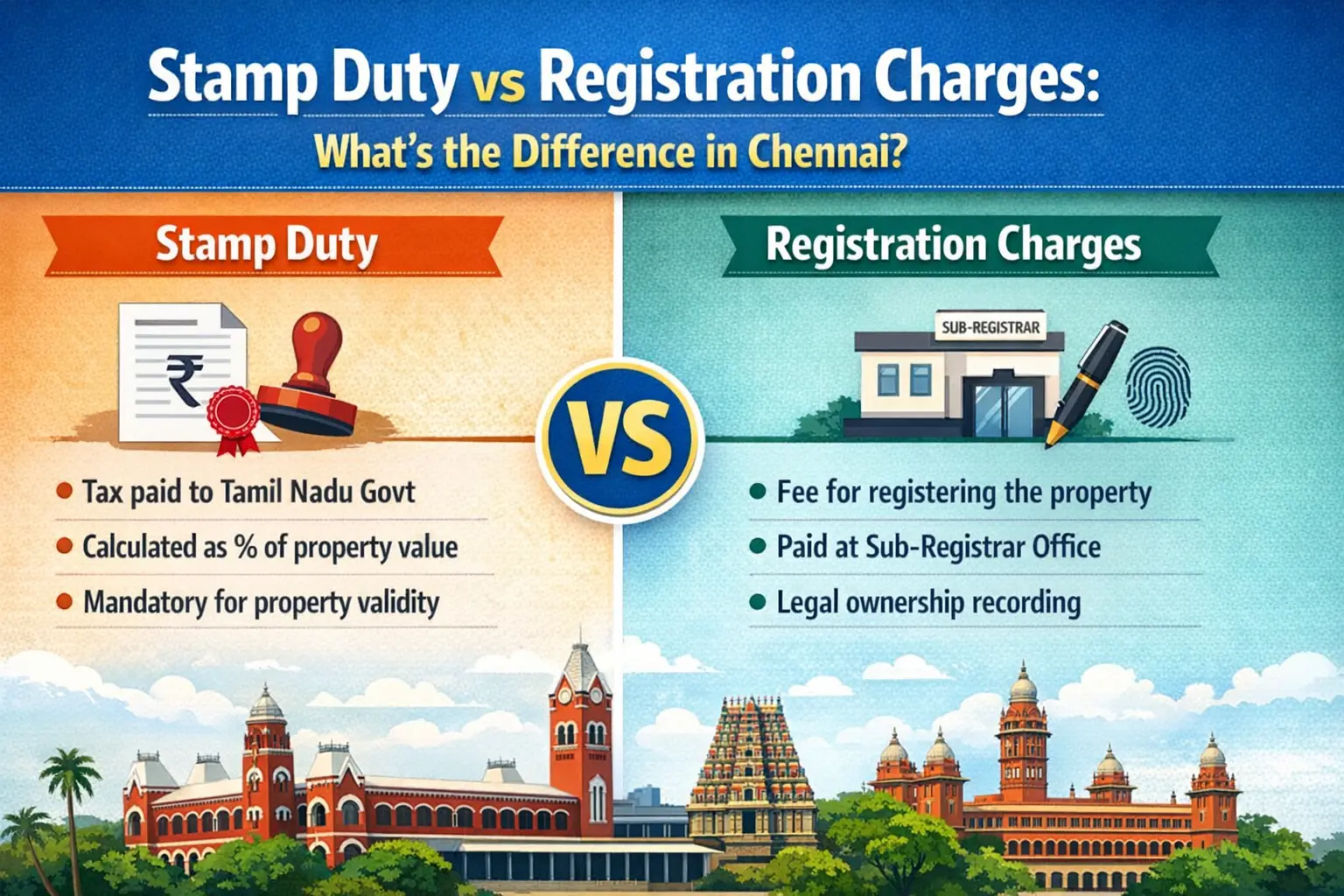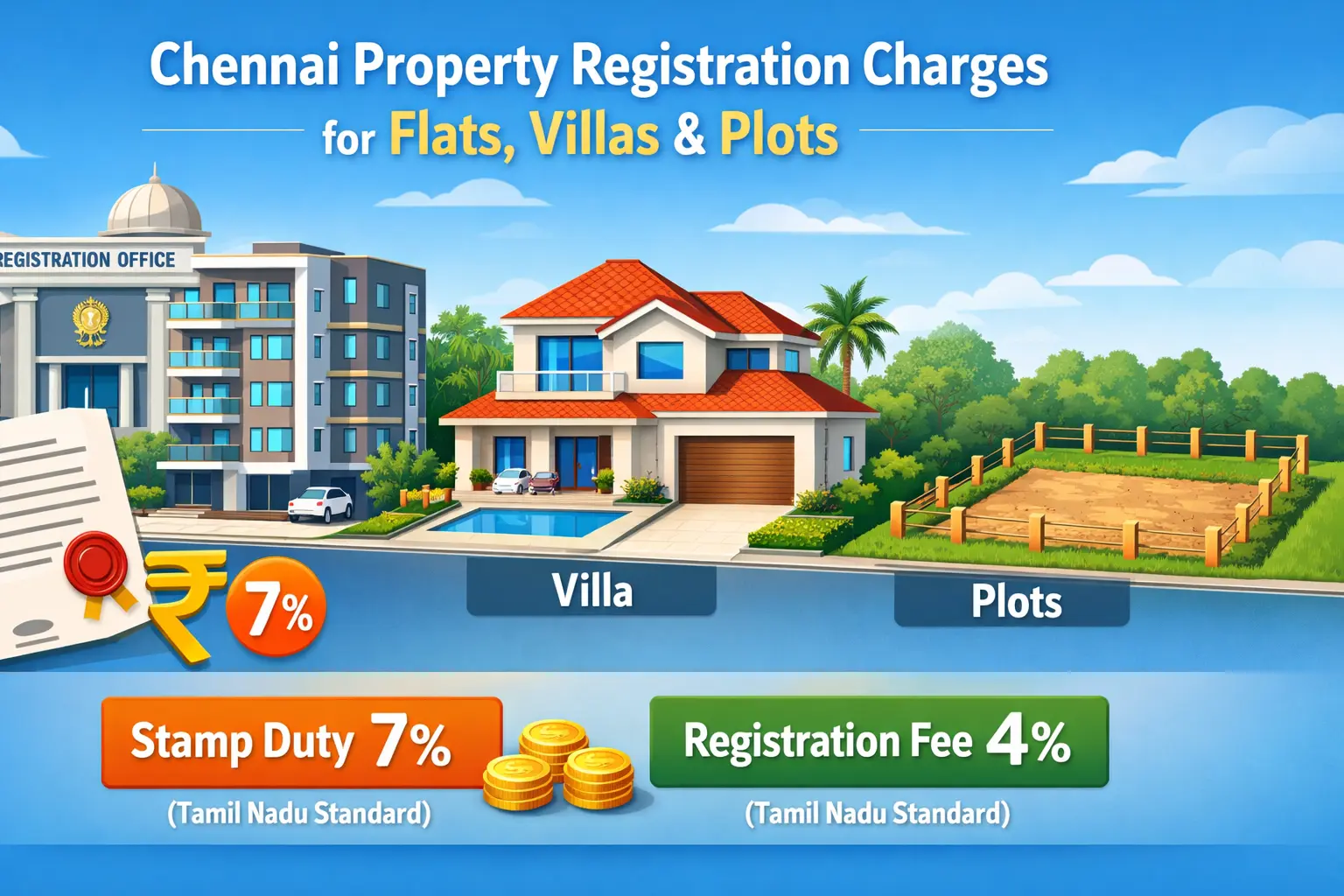Sustainability in India's Real Estate Alterations by 2024
In 2024, the Indian real estate business will undergo a major metamorphosis, with a pivotal move toward sustainable living practices and environmental activities.
In 2024, the Indian real estate business will undergo a major metamorphosis, with a pivotal move toward sustainable living practices and environmental activities. Certifications like as IGBC and LEED are gaining significant support, with over 8 billion square feet of LEED-certified space already built. Incentives such as tax rebates and faster approvals are encouraging developers to meet the growing demand for eco-friendly constructions.
The use of renewable energy sources, water conservation measures, and a focus on establishing healthy communities all demonstrate the sector's commitment to a sustainable future.
With a market expected to exceed RS 500 billion by 2027 and a spike in green building certifications, the industry is positioned for continuous growth.
| Best Builder Floor Apartment in Chennai |
Growing demand for green-certified buildings.
A significant increase in demand for green-certified buildings is changing the industry's trajectory.
This shift is being driven by the widespread adoption of certification systems such as the IGBC and LEED.
The latest data demonstrate the significance of this paradigm change, with the IGBC certifying over 7,800 green buildings by October 2023, with a target of 10,000 by 2024.
Developers, aware of the growing environmental consciousness, are increasingly using these certification processes. This spike in interest is evidenced by the fact that 60% of new office spaces in India now seek LEED or IGBC certification.
The incentives driving this change are varied, ranging from tax advantages to faster project permits for eco-friendly structures.
Notably, the business world is driving this change, with office spaces emerging as pioneers in creating sustainable work environments.
As solar panels and wind turbines become standard components of construction projects, the incorporation of renewable energy sources becomes more frequent, reducing reliance on traditional fossil fuels.
The wise use of energy-efficient materials and construction techniques strengthens the industry's commitment to sustainability.
This transformation represents not only a change in building standards, but also a conscious effort to create a more sustainable and responsible future for India's real estate industry.
Emphasis on enhancing energy efficiency
The use of renewable energy sources, such as solar panels and wind turbines, is more than just a trend; it represents a clear shift toward sustainability.
The Indian real estate market is witnessing a significant transition in 2024, highlighted by a pivotal shift towards sustainable living practices and green projects.
Rooftop solar installations on commercial buildings are expected to reach 40 GW by 2024 (Mercom India), demonstrating a significant shift towards cleaner and more efficient energy options.
Concurrently, the use of smart building technology is at the forefront of this shift. India's smart building market is anticipated to exceed 130 billion by 2025.
Automated systems managing lighting, HVAC, and water management are increasingly fundamental to construction processes, ensuring a good balance between comfort and sustainability.
Furthermore, the popularity of energy-efficient materials and construction approaches is rapidly increasing. This trend reflects not just an industry-wide acknowledgement of environmental responsibility, but also a planned shift toward sustainable methods that appeal to the conscientious modern customer.
As India's real estate sector adopts more energy-efficient measures, it not only meets current demands but also foreshadows a greener future for the business.
Water conservation efforts
Within India's dynamic real estate sector, the current emphasis on water conservation represents a watershed moment in industry norms. Rainwater harvesting technologies, a cornerstone of sustainable development, have been widely adopted.
Creating healthy and vibrant neighborhoods
In India's shifting real estate environment, the dedication to building healthy and livable communities has become a pillar of progressive growth.
A significant shift is visible as developers prioritize green spaces and open spaces in their developments, defying traditional urban planning rules.
Major cities such as Delhi and Bengaluru are mandating higher green space ratios in new projects, promoting outdoor activities and improving air quality.
The industry is embracing more walkable and bicycle-friendly designs, with the goal of creating neighborhoods that minimize reliance on cars and promote better living habits. This paradigm shift is consistent with the greater worldwide trend toward sustainable urban development.
Simultaneously, new features in real estate projects are revolutionizing community life. Community gardens, composting facilities, and electric vehicle charging stations are increasingly becoming standard features of buildings.
These amenities not only meet the changing needs of environmentally conscious citizens, but also contribute to a comprehensive vision of sustainable living.
According to reliable sources, the Indian Green Building Council (IGBC) has certified over 7,800 green buildings by October 2023, demonstrating the industry's commitment to developing healthier, more sustainable societies.
In this changing era, real estate is about more than just building structures; it's about creating places that promote well-being, connectedness, and environmental responsibility.
Incorporating Ecological Principles
The adoption of circular economy ideas appears as a defining ethos, indicating a deliberate shift toward sustainable construction processes.
This strategic alignment is more than just a trend; it is a fundamental commitment to minimizing waste and maximizing resource reuse in the construction industry.
The incorporation of recycled materials into construction processes is a critical component of this paradigm, and it is gaining popularity rapidly.
According to reports, India creates more than 530 million tonnes of construction trash each year, necessitating a considerable focus on waste reduction through innovative solutions. This not only solves environmental problems, but it also demonstrates a comprehensive commitment to responsible construction.
Initiatives are underway to design buildings for disassembly and flexibility to future demands, which will bolster this commitment.
This forward-thinking strategy is consistent with the industry's larger objective to lessen the need for demolition and reconstruction while limiting the environmental effect of traditional building processes.
As the Indian real estate sector embraces circular economy ideas, it not only establishes itself as a leader in sustainable development, but also lays the groundwork for a future in which construction seamlessly integrates environmental care with resource efficiency.
Obstacles and possibilities
Navigating the world of sustainable real estate in India brings both problems and possibilities, highlighting the industry's transformational trajectory.
According to recent studies, the initial barrier to green construction is the higher prices. Despite the long-term economic benefits, the initial investment is a challenge that necessitates careful planning and financial creativity.
A related difficulty is a general lack of awareness among certain purchasers about the benefits of green activities.
Education and awareness programs are critical for closing this knowledge gap and promoting a larger understanding of the long-term value and positive environmental impact of sustainable living places.
Furthermore, the business confronts challenges due to a scarcity of experienced green construction professionals. Upskilling the workforce is critical to meeting the growing need for knowledge in designing, building, and running sustainable buildings.
However, these obstacles are balanced out by enormous opportunities. The long-term benefits of sustainable living, which include lower operating expenses, enhanced health and well-being, and higher property values, are driving the market ahead.
With rising government backing, technical breakthroughs, and a growing consumer awareness, the trajectory of sustainable real estate in India is primed for continuing climb.
Prediction in 2024
The trajectory for India's real estate landscape shows a strong continuance of the increase in demand for green buildings in all segments.
By October 2023, the Indian Green Building Council (IGBC) has certified more than 7,800 green buildings, with a target of 10,000 by 2024.
The drive for this rise goes beyond market forces, with strong government backing driving the shift. Initiatives such as the Smart Cities Mission and the Green Infrastructure Initiative are promoting green building methods.
Concurrently, technical improvements, as evidenced by India's estimated Rs13.4 billion smart building industry by 2025, strengthen the groundwork for a more sustainable future.
Crucially, consumer awareness is emerging as a key driver of this paradigm change, with customers increasingly prioritizing eco-friendly products. As this combination of variables gets traction, sustainable living is poised to become not only a trend, but the expected norm in India's real estate market by 2024.
This future-forward vision emphasizes the industry's dedication to a greener, more responsible built environment, reflecting a transformative era in Indian real estate.
The picture of India's real estate market in 2024 is unmistakably characterized by a transformational transition toward sustainable living.
The proliferation of green certifications, as seen by nearly 8 billion square feet of LEED-certified space, establishes India as a global leader in environmentally friendly construction.
The market's rising adoption of renewable energy sources, as indicated by the predicted 15 GW of rooftop solar installations by 2024, demonstrates a concerted attempt to lessen environmental effect.
— - —













